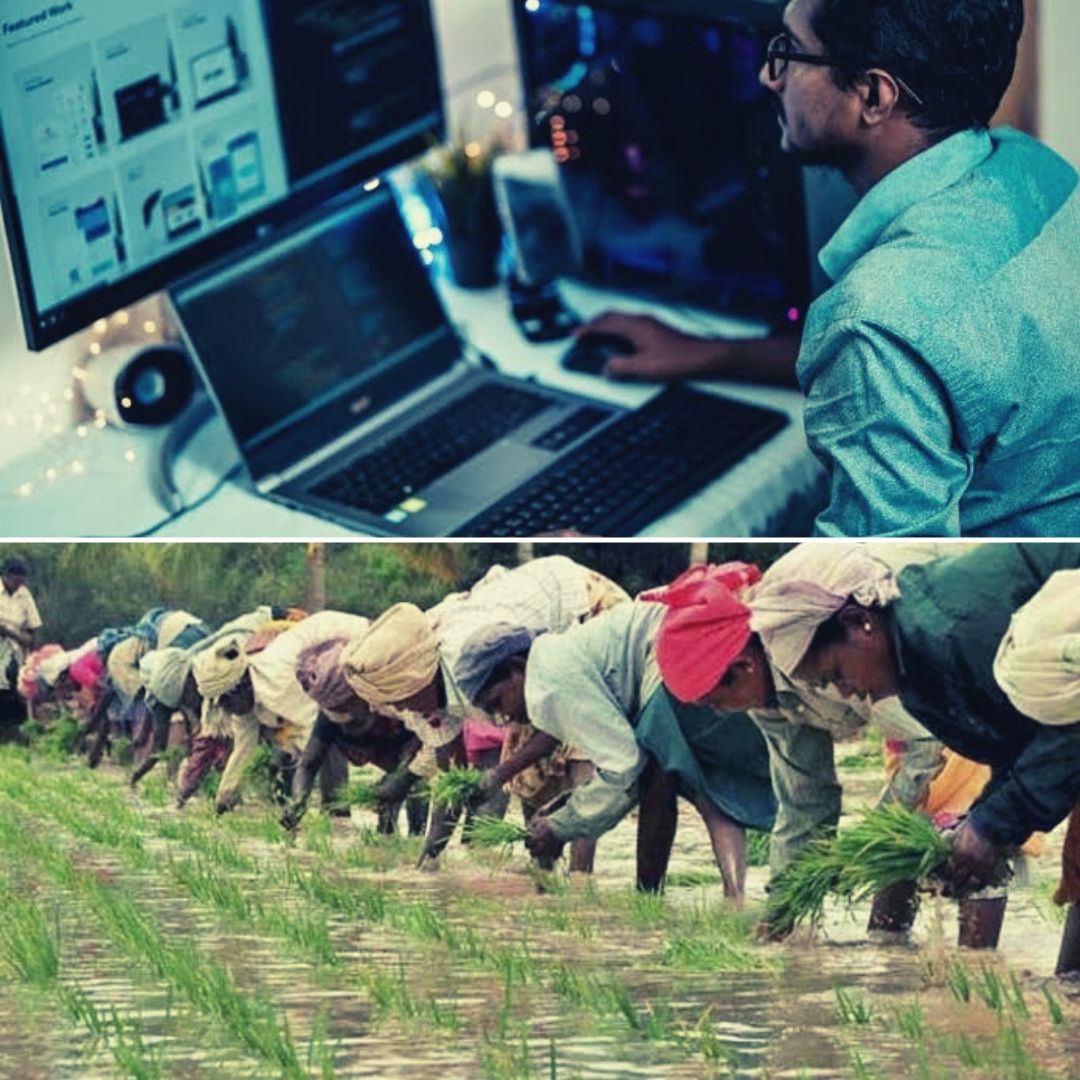
Image Credits: Unsplash and Agri Tourism (Representational)
Revolutionising Agrarian Sector: Jharkhand Becomes First State To Introduce Blockchain Tech In Farming
Writer: Laxmi Mohan Kumar
She is an aspiring journalist in the process of learning and unlearning many things. Always up for discussions on everything from popular culture to politics.
Jharkhand, 20 Aug 2022 5:15 AM GMT
Editor : Snehadri Sarkar |
While he is a massive sports fanatic, his interest also lies in mainstream news and nitpicking trending and less talked about everyday issues.
Creatives : Laxmi Mohan Kumar
She is an aspiring journalist in the process of learning and unlearning many things. Always up for discussions on everything from popular culture to politics.
With over three lakh farmers registered and 30,000 quintals of seeds distributed, Jharkhand revolutionizes the agrarian sector by incorporating it with blockchain technologies that ensure transparency and ease of management.
Jharkhand State Government becomes the first in India to implement blockchain technology in the agricultural sector. The state government incorporated the benefits of the latest technology to create a systematic structure that enables transparency in agricultural schemes such as the seed exchange program.
As per data presented by the Directorate of Agriculture, over three lakh farmers from Jharkhand have already registered on the platform and are being distributed seeds at a subsidised rate.
First Of Its Kind Collaborations
The Jharkhand Government, in collaboration with the tech company SettleMint, were able to introduce a blockchain-based distribution platform for the farmers of the state.
The platform mainly keeps track of all the seed supply distribution, right from the issuing of supply orders by the Directorate of Agriculture, placing the seed in order, to tracking the distribution chain. The distribution network extends from the government seed producing agency and gets distributed across to retailers, cooperative societies, Farmer Producer organisations, and directly to the farmers. Blockchain platforms make it easier to keep track of the same and ensure no form of pilferage occurs in between.
Earlier farmers also used to complain about receiving spurious seeds under the government seed exchange schemes, and this issue would be efficiently dealt with through technology such as a blockchain. Commenting on the same, the Director of Agriculture and Horticulture said that "It is the utmost priority of this government to make quality seeds available to the farmers at the right time, along with filtering of middlemen, identification of the beneficiaries and creation of farmers' database".
Presently, over three lakh farmers are registered on this platform, and around 30,000 quintals of seeds have been distributed to them. These include over 300 varieties of 30 crops distributed at subsidised rates between the kharif and rabi seasons.
Introducing The Blockchain System
Blockchain, in simpler terms, is a form of shared ledger system that records transactions and tracks assets without having the data tampered with. Since it is a virtual system, it avoids the many errors that may arise in a system managed by humans. Thereby, it reduces risks and incorporates a faster management system that is accountable and transparent. Blockchain also maintains a confidential nature that ensures only permitted members to access the stored information.
As reported by Money Control, each farmer has been registered on the blockchain network along with details such as their Aadhaar number and mobile number stored on the platform. The farmers will then be updated with information on the seed distribution via the system after they enter the personal one-time password (OTP).
Through this means, the state will be enabled to keep an accurate tab on where and how the seeds are being distributed across districts, along with additional information on the frequency, quantity, and variety of seeds being purchased by the farmers. It creates a virtual database that enhances micro monitoring of horticulture schemes. CEO of SettleMint, Shahzad Fatmi, also added that the introduction of the blockchain system in the agriculture sector would revolutionise the agrarian supply chains and make them more transparent and traceable.
Also Read: Meet The Agricultural Entrepreneurs From Various Remote Regions
 All section
All section














